And diplomacy won
The fruits of the Iran nuclear deal, visible from this month, demonstrate the necessity and benefits of multilateralism.
22 January 2016, Indian Express
The United Nations was set up 70 years ago to save future generations from the scourge of war. While it has arguably succeeded in preventing another great war, its track record on peace and security has not always been stellar.
Assessments on the vitality, durability and success of diplomacy in any year — including 2015 — are best carried out away from high-decibel levels and cantankerous TV anchors. Preferably, assessments are best when undertaken by those who are not themselves camp followers and cheerleaders. Diplomacy is a fine art when well-practised and fashioned by the mature; not by those seeking the thrill of tomorrow’s headlines. Subjectivity will, by definition, find its way into any human endeavour. The seasoned practitioner is trained to guard against premature excitement, euphoria and hubris.
A closer look at some of these successes indicates that 2015 has reinforced the need for multilateralism. The 2030 agenda, for example, unlike the Millennium Development Goals of 2000, reflect a bottom-up negotiation process by the entire UN membership. Their impact could well prove to be transformational, even as issues relating to their financing and implementation need to be resolved. Equally, decisions taken by the
COP 21 in Paris represent a decisive victory against the irresponsible, particularly the climate sceptics. The UN Secretary General, Ban Ki-moon, stated after COP 21: “For the first time, every country in the world has pledged to curb their emissions, strengthen resilience and act internationally and domestically to address climate change.” But, here again, follow-up action to ensure that global warming can be limited to meet the ambitious targets will need to be demonstrated.
At the multilateral level, 2015 also marked the 15th anniversary of Resolution 1325 on women, peace and security. Resolution 2242, passed in September 2015, affirms the essential role of women in conflict prevention, peacemaking, and peace-building. Along with the establishment of UN Women in 2010, this has firmly entrenched the centrality of women’s empowerment and gender equality in the international discourse, a big plus for diplomacy in 2015.
Among the major bilateral diplomatic successes of the year was the decision for the normalisation of relations between the US and Cuba. The apology by Japan and the offer of $8 million to Korean “comfort women” during World War II were widely welcomed as an initiative designed to deal with a troublesome past.
2015 has hopefully also driven home to the main stakeholders the fact that the major threats to international peace and security are best handled collectively. These are beyond the capability of any one of them. A lot went wrong in 2015 precisely because this principle was not always upheld: The continued stalemate on Syria with devastating humanitarian consequences, the inability to deal with the Islamic State (IS) adequately, the situation in Yemen, where there has been more physical destruction in five months than in Syria in five years. The roadmap for collective action against the IS produced by the UN Security Council provides just that glimmer of hope. If the Turks can overcome their desire to first go after the Kurds, and the Americans and Russians come to genuinely believe that the IS constitutes a bigger threat than Bashar al-Assad, cooperation may result in some hope for Syria. For this, the Saudis and their followers also need to play ball.
Assessments of diplomatic successes, in the real world, are best judged against a template. That template is, in fact, enshrined in the UN Charter. The guidance, certainly insofar as issues relating to peace and security are concerned, is contained in the almost forgotten Chapter VI of the Charter, titled “Pacific Settlement of Disputes”. Instead of seeking conciliation, mediation, and judicial settlement, as provided for in Article 33, the previous decade and a half has been marked by the desire to use force with or without the UNSC’s authorisation under Chapter VII. Iraq 2003 witnessed military action when a sceptical UNSC refused to be persuaded by the slender evidence of the existence of weapons of mass destruction. In Libya 2011, council authorisation was forthcoming in what later turned out to be a barely disguised attempt at regime change. The horrific consequences of the civil war in Syria are still playing out. Clearly, Iraq 2003, Libya 2011, and Syria now, provide the most eloquent testimony on the failure of diplomacy. When diplomacy fails or is abandoned, the wheels of war start to grind. The consequences of military action in Iraq, Libya and Syria laid the basis for the emergence of the IS. What we have not seen in 2015 — and would be lucky to see in 2016 — is a reversion to the Charter and an acknowledgement that conflict-prevention is the best diplomacy.
2016 will not be like any other normal year. The US will elect its 45th president. The UN will elect its ninth secretary general. Both will be expected to play an important role in determining the contours of peace and security and economic and social development, impacting large parts of the world. Equally, occupants of these high offices invariably turn to issues that will define their legacy in the years ahead. It is, however, necessary to distinguish between developments that just make news and diplomatic initiatives that will alter the course of history for the better. As is already cited, the US president is citing the Iranian nuclear deal and COP 21, along with the normalisation of relations with Cuba, as his legacy. Looking closely at some of these achievements, the star vehicle has been multilateralism — even the very strong realise its benefits.
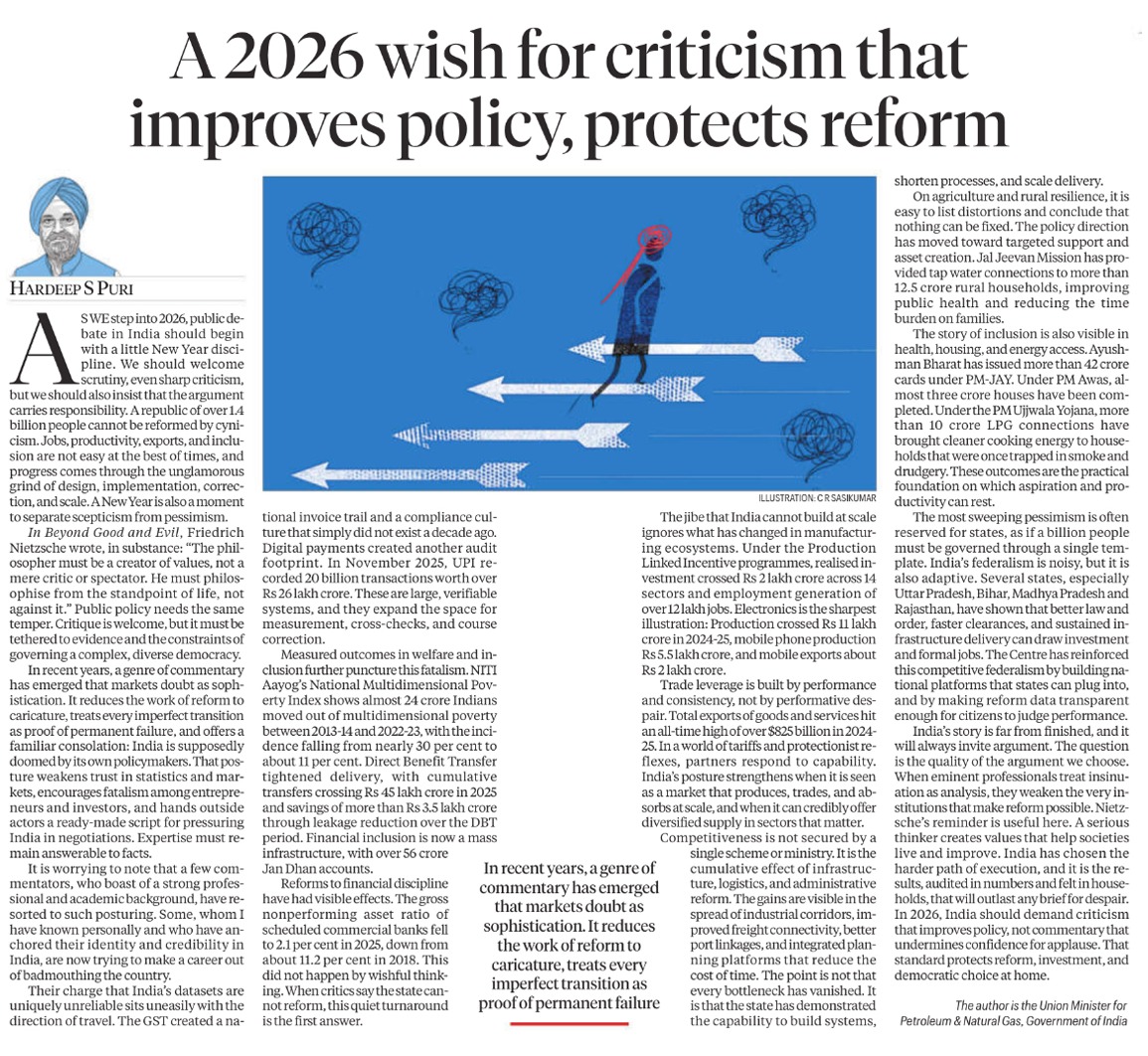
Our democracy benefits by criticism, but not by motivated fatalism by some “experts”, who seem more guided by their politics r...
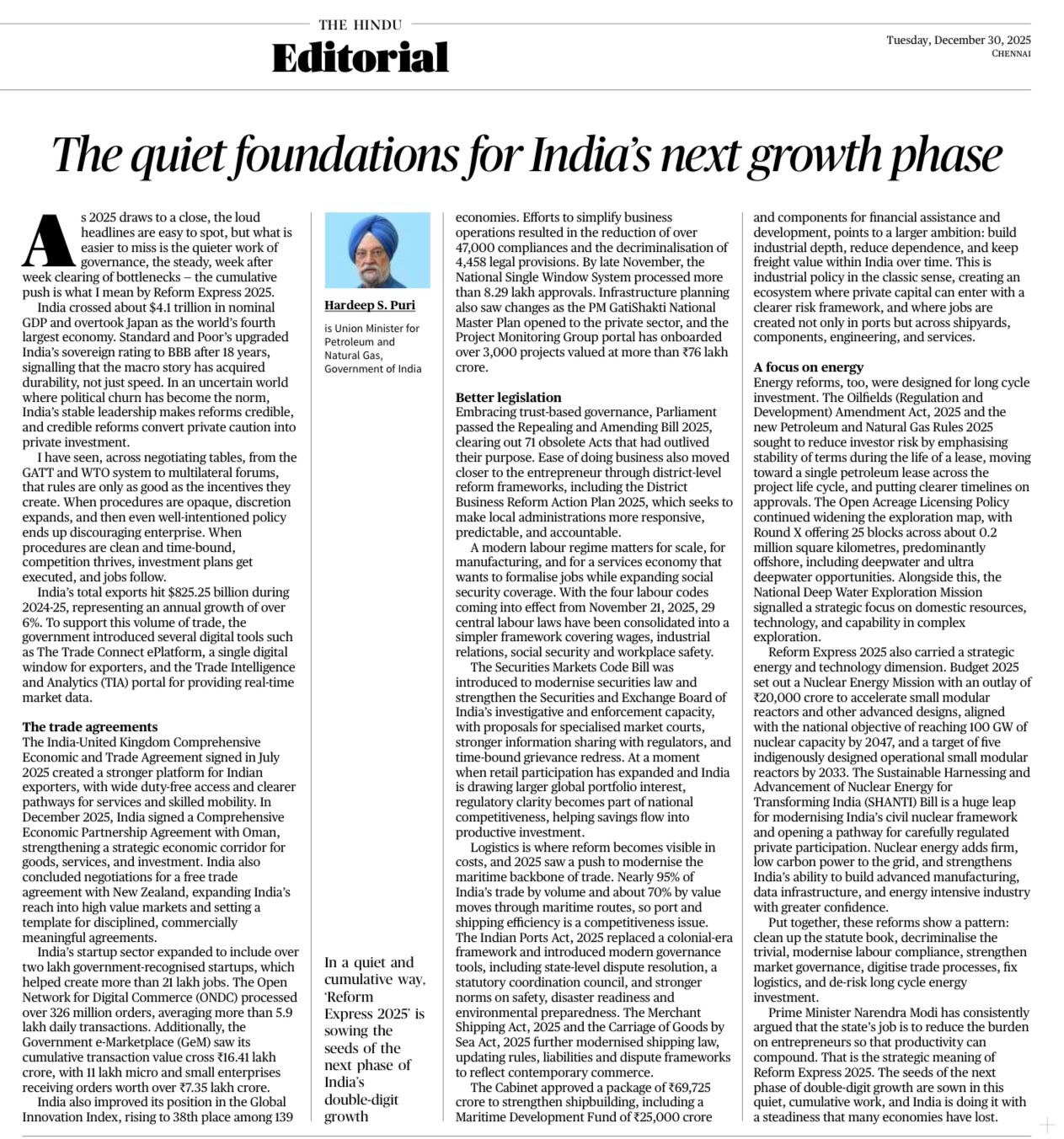
The quieter work of governance, the steady, week after week clearing of bottlenecks - this cumulative push is what I mean by Refo...
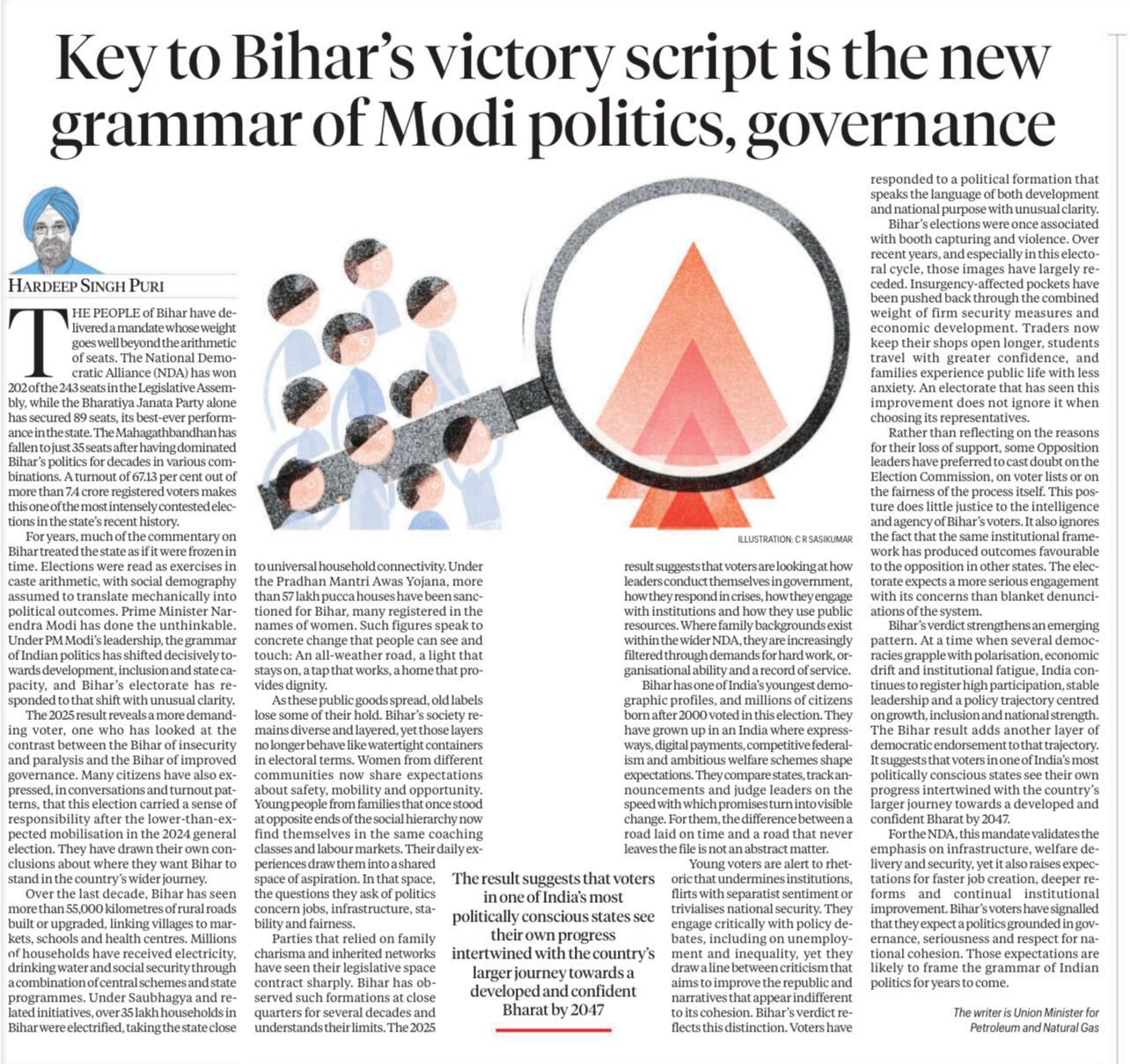
PM Sh Narendra Modi Ji has done the unthinkable in Bihar and it will change the grammar and lexicon of Indian politics for the ti...
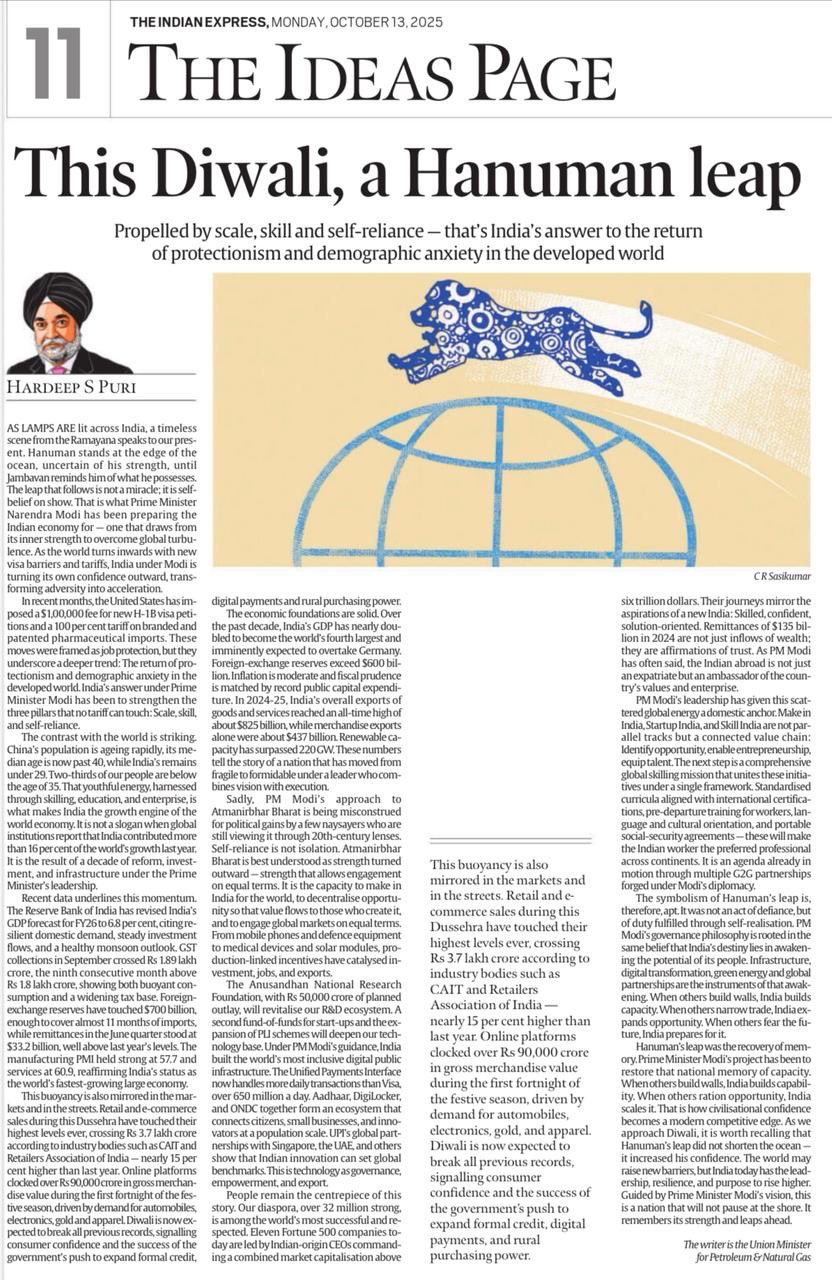
As the world passes through a period of geopolitical turmoil and uncertainty, India, under the visionary & decisive leadership of ...
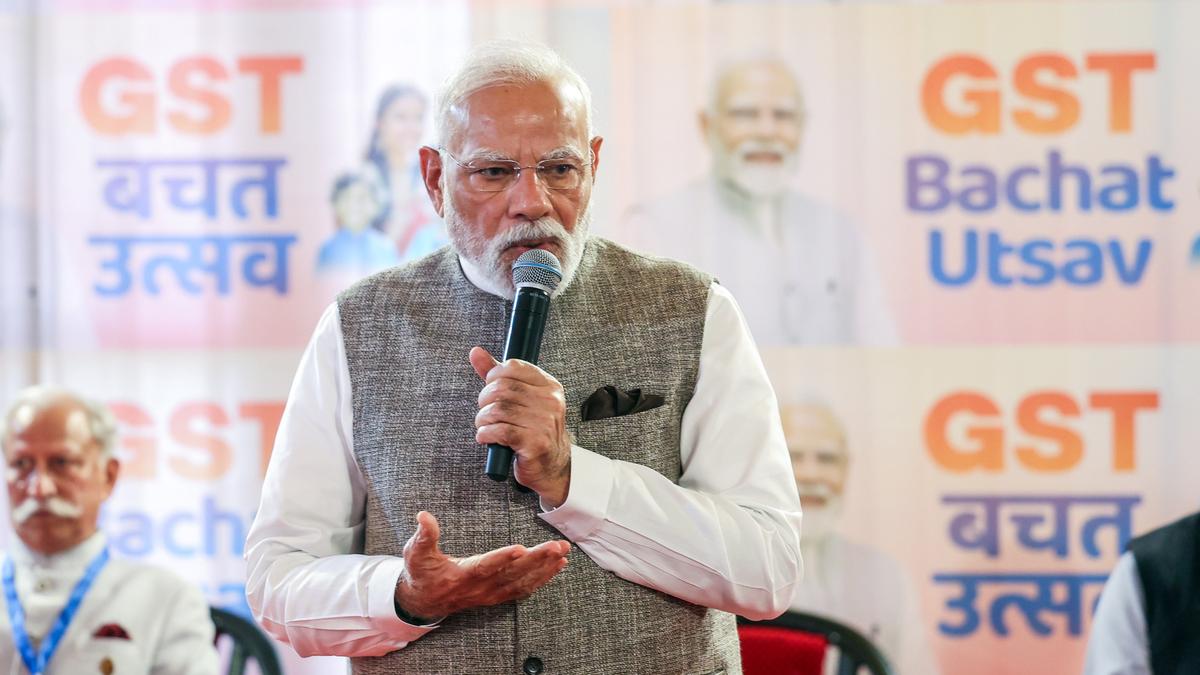
The Prime Minister’s professionalism and work ethic are what make the difference on the ground Praise has been showered on Pr...
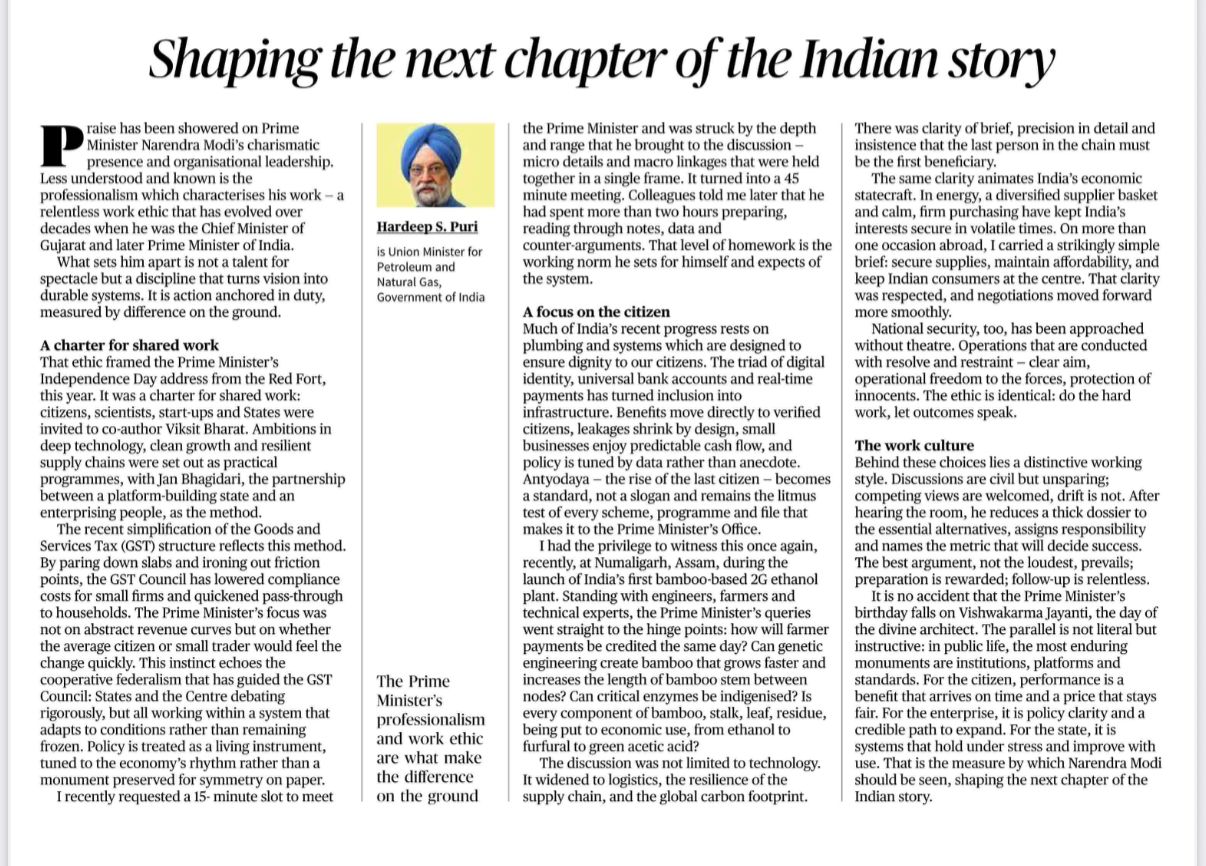
Shaping the next chapter of the Indian story!...

Indian cities are again on that path to being modern yet humane, ambitious yet inclusive, global in outlook yet rooted in our valu...

India’s fact-rich story of resilience, growth and energy security will silence the ‘global doubters’ who call it a ‘dead e...
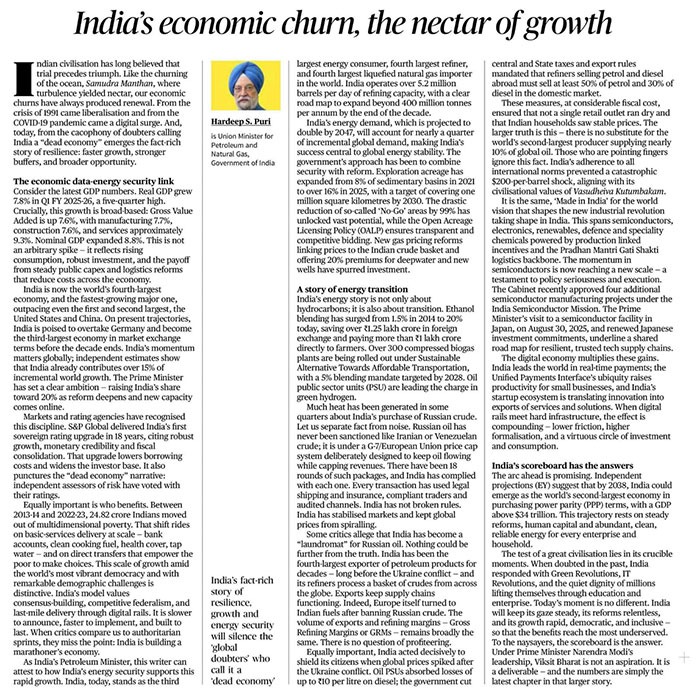
The test of a great civilisation lies in its crucible moments. When doubted in the past, India responded with Green Revolutions, I...